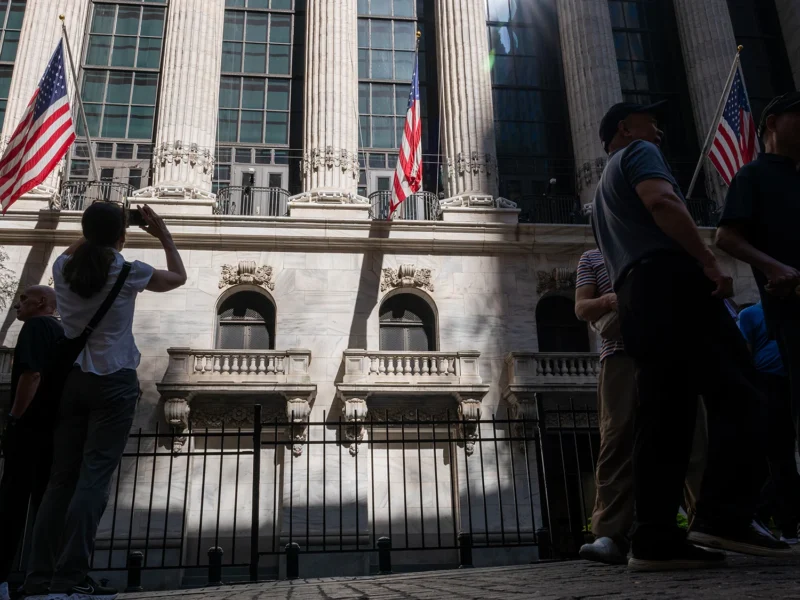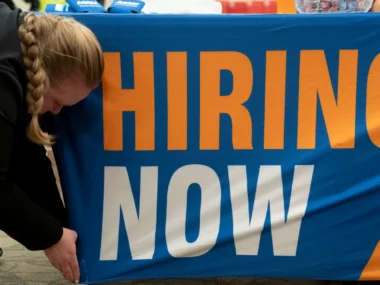Stocks dropped sharply on Thursday after new data heightened concerns that the US economy might be weakening, with interest rates remaining at their highest level in 23 years.
The Dow Jones Industrial Average fell by 496 points, or 1.2%, after having dropped more than 700 points earlier in the day. The S&P 500 decreased by 1.4%, and the Nasdaq Composite lost 2.3%.
US Treasury yields decreased, with the 10-year yield falling below 4%.
Quincy Krosby, chief global strategist at LPL Financial, commented that the decline in the ten-year Treasury yield to under 4% suggests growing worries about economic growth, as recent data indicates the economy is cooling faster than expected.
Recent economic reports showed that first-time jobless claims rose to an estimated 249,000 last week, the highest level since August. Continuing claims, which track those receiving unemployment benefits for at least a week, jumped to 1.877 million, the highest since November 2021. Despite investors’ optimism earlier this week after the Federal Reserve hinted at a potential rate cut in September and acknowledged progress in controlling inflation, the Fed is now focusing on job market strength. Wall Street is watching for signs that the job market remains robust and could support a soft landing for the economy, where inflation cools without triggering a recession.
The labor market has shown resilience despite high interest rates, but there are emerging signs of strain. Hiring rates are slower, wage growth has cooled, and the unemployment rate has risen to 4.1%, the highest in over two years. The July jobs report, due Friday, is expected to show a net gain of 175,000 jobs and a steady unemployment rate.
Federal Reserve Chair Jerome Powell indicated that a significant downturn in the job market would be concerning, and any major weakening could prompt a response.
Chris Zaccarelli, chief investment officer at Independent Advisor Alliance, noted that despite recent data, a quarter-point rate cut in September remains likely unless there is a significant deterioration in the job market.
Markets have been volatile recently, with some earnings reports falling short and concerns about increased tech regulation and disappointing AI performance affecting investor sentiment. While some reports indicate a slowdown in consumer spending and weak preliminary jobs data, the overall strength of the US economy persists, and Wall Street remains relatively unaffected by Vice President Kamala Harris’ unexpected lead in the Democratic presidential race.











